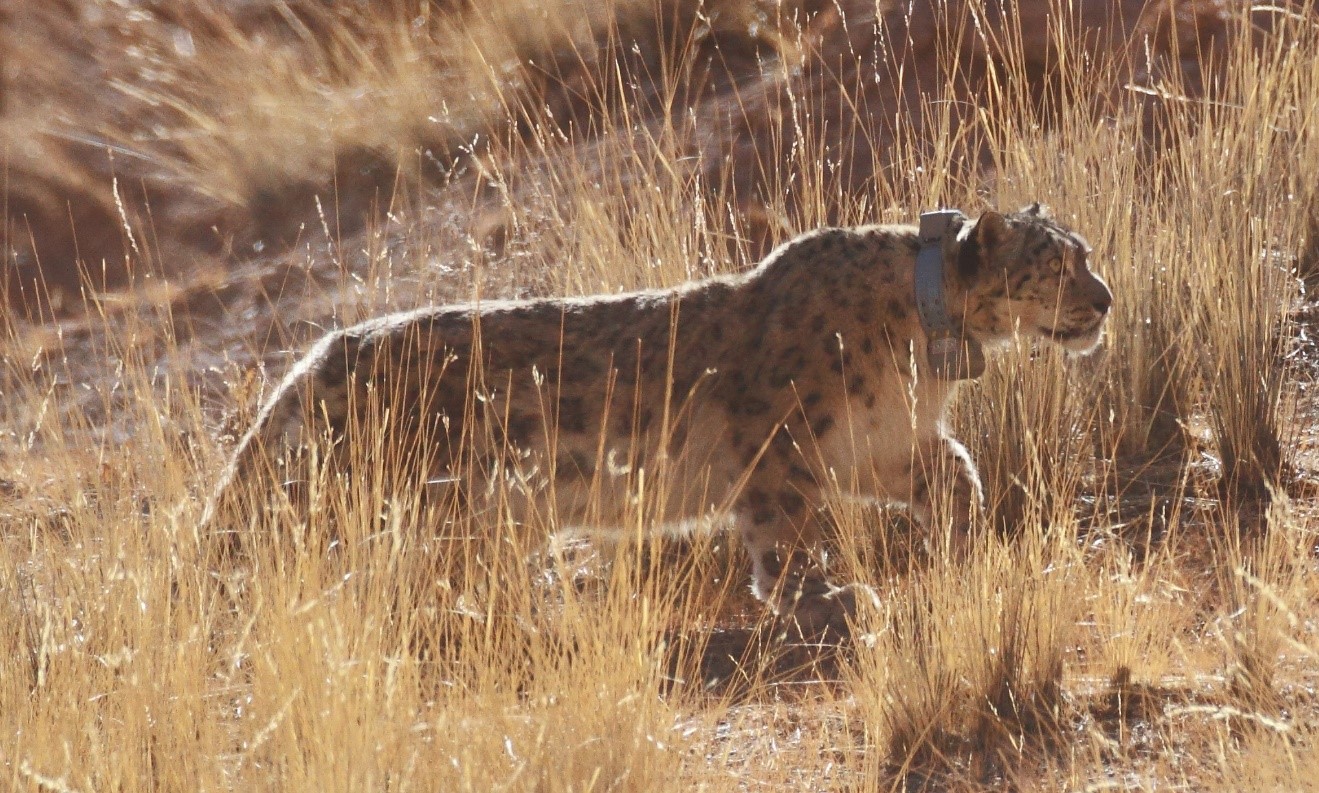
(题图拍摄:向定乾)
动物的运动是动物个体完成其生活史的基础。动物运动的模式与规律是其栖息地选择、个体扩散与领域建立、个体间与种间相互作用等生态过程的外在体现,受到个体生理状态、个体间关系、种间关系、环境因子等诸多因素的影响。标记、定位与追踪动物个体, 是动物生态学研究的重要途径。自20世纪80年代起,以动物个体佩戴的传感器为核心的野生动物追踪技术在我国被广泛用于野生动物行为与生态研究。尤其是近20年来,我国标记动物的数量、累积数据量均快速增加。为进一步推动相关新技术与新方法在我国野生动物研究与监测中的应用,推动相关研究的深入开展并促进研究团队之间的交流,将于2024年7月15日在威尼斯wnsr666举办“野生动物追踪与运动生态学研讨会”。欢迎正在开展或计划开展相关研究的科研工作者和同学参加!(线下参加报名方式和线上会议链接后附)
主办单位:
威尼斯wnsr666,威尼斯wnsr666生态研究中心
斯密森尼保护生物学研究所(Smithsonian Conservation Biology Institute)
北京生物多样性科学研究会
负责人:
李晟 研究员(威尼斯wnsr666, shengli@pku.edu.cn )
William McShea 研究员(Smithsonian’s
National Zoo & Conservation Biology Institute, McSheaW@si.edu)
会议日程:
|
ID
|
Time
|
Name
|
Institute
|
Title
|
|
|
8:30-8:40
|
Bill McShea
|
Smithsonian’s
National Zoo and Conservation Biology Institute
|
Opening and
Introduction
|
|
1
|
8:40-9:00
|
Christen Fleming
|
University of
Central Florida
|
Continuous-time movement modeling
|
|
2
|
9:00-9:20
|
Jared Stabach
|
Smithsonian
Institution
|
Movement of Life
|
|
3
|
9:20-9:40
|
Cao Lei曹垒
|
CAS, Research
Center for Eco-Environmental Sciences
|
Biogeographical
variation in migratory patterns of Palearctic breeding greater white-fronted geese
|
|
4
|
9:40-10:00
|
Fan Pengfei范朋飞
|
Sun Yat-sen Univ.
|
Using movement
data to infer cognitive ability, social organization, and population density
in primates
|
|
5
|
10:00-10:20
|
Li Yumei李玉美
|
CAS, Institute of
Zoology
|
Research on
seasonal home ranges and habitat selection of Sika deer based on GPS collar
tracking technology
|
|
|
10:20-10:40
|
Break
|
|
|
|
6
|
10:40-11:00
|
Xu Wenjing徐雯靓
|
Senckenberg
Biodiversity and Climate Research Centre
|
Hindered hooves
and the wires that bind them: Ungulate movement through fenced landscapes
|
|
7
|
11:00-11:20
|
Zhao Tianhao赵天昊
|
University of
Groningen
|
Using various
types of miniature loggers to study migration movement of small songbirds
below 25g: A case study of tracking Siberian rubythroat and Siberian stonechat
on the Qinghai-Tibet Plateau
|
|
8
|
11:20-11:40
|
Cheng Yachang程雅畅
|
Sun Yat-sen Univ.
|
Into the unknown:
Unravel drivers and patterns of birds' movement in China sea
|
|
9
|
11:40-12:00
|
Liu Xiaomin刘晓敏
|
Chinese Academy
of Forestry
|
Home range and
migration pattern of wild camel in the Kumtag Desert, China
|
|
|
12:00-13:00
|
Lunch
|
|
Lunch box
|
|
10
|
13:00-13:20
|
Li Xinhai李欣海
|
CAS, Institute of
Zoology
|
migrationR: A
package for bird migration analysis
|
|
11
|
13:20-13:40
|
Wang Fang王放
|
Fudan Univ.
|
Species
behavioral plasticity in Shanghai urban environment: Tracking raccoon dogs in
Shanghai
|
|
12
|
13:40-14:00
|
Cheng Zhibin程志斌
|
Beijing Milu
Ecological Research Cente
|
Migration
patterns and driving factors of rewilding Milu in the Poyang Lake and
Dongting Lake basins
|
|
13
|
14:00-14:20
|
Liao Qianru廖倩儒
|
University of
Maryland
|
Water-crossing behaviors of caribou affected by ice
melting and freezing during migrations in the high Arctic
|
|
14
|
14:20-14:40
|
Han Sicheng韩思成
|
Peking Univ.
|
Satellite
tracking of wild leopard cats in Beijing
|
|
15
|
14:40-15:00
|
Kong Yueqiao孔玥峤
|
Peking Univ.
|
A real reclusion:
Habitat use of elusive Chinese mountain cats in a human-dominated landscape
|
|
|
15:00-15:20
|
Break
|
|
|
|
16
|
15:20-15:40
|
Zhang Yuewen张瀹文
|
Peking Univ.
|
The ecological
research of Felidae large carnivores based on collar
tracking: Status and outlook
|
|
17
|
15:40-16:00
|
Li Xiaoyu李小雨
|
Peking Univ.
|
Fearless wolves:
home range of Himalayan wolves (Canis
lupus chanco) and interaction with human settlements
|
|
18
|
16:00-16:20
|
Wen Lijia温立嘉
|
Beijing Forestry
Univ.
|
Satellite
tracking reveals the death threats to the black-necked crane
|
|
19
|
16:20-16:40
|
Zeng Qisha曾麒莎
|
Chengdu Research
Base of Giant Panda Breeding/Liaoning Univ.
|
Desirable and
thorny paths: Choices and challenges facing the eastern buzzard(Buteo japonicus) migration across eastern
China
|
|
20
|
16:40-17:00
|
Wu Zhiyong伍智勇
|
Global Messenger
|
The scheme of
wildlife precise synchronous monitoring and analysis system based on BD &
reverse positioning
|
|
|
17:00-17:10
|
Li Sheng李晟
|
Peking Univ.
|
Closing
|
会议语言:英文
会议地点:威尼斯wnsr666吕志和楼B101 (B101,
Lui Che Woo Building)
参加方式:
因场地空间限制,线下参加人数上限为80人,报名请点击以下链接或扫描二维码填写问卷。报名成功后我们将通过邮件通知您,并收集相关信息以办理出入校园相关手续。报名截止日期:7月9日24:00时。
(已成功报名7月16-20日野生动物追踪数据分析培训班的学员无需再填写该问卷)
线下参会报名链接与二维码 https://www.wjx.cn/vm/QgXd2bH.aspx#

线上可以通过腾讯会议参加,会议号:315-847-947,链接:https://meeting.tencent.com/dm/wSg6HTBHNF52。
本研讨会不收取费用。参会者差旅及食宿自理。15号中午组织方将为成功报名参加研讨会的人员免费提供午餐盒饭。
会务联系:张瀹文 yuewenzhang@stu.pku.edu.cn

 下载Firefox
下载Firefox
 下载Firefox
下载Firefox
